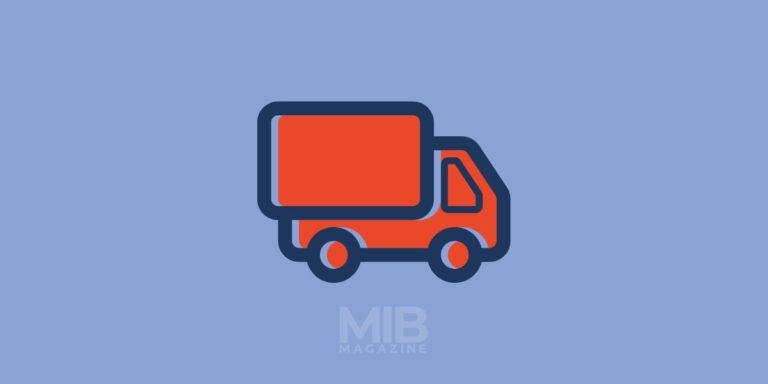Starting a Refrigerated Trucking Company – Business Plan

Refrigerated Transport or Cold chain logistics is a lucrative and in demand business. Thousands of commodities and goods are transported from one place to another using this temperature controlled transportation to ensure the safety and longevity of the commodity.
Refrigerated transportation basically ensures a controlled atmosphere and temperature that is necessary for certain items to retain their quality and durability overtime while they are transported.
The refrigerated transportation market is big and employs millions of people. In the United States, the market is of $2383.72 million as of 2020 and is expected to grow up to $3248.91 million by 2025.
The global figure for the same is expected to grow up to $19.29 billion by 2023 with a CAGR of 5.67% from 2018-2023. The global market value of refrigerated transport in 2018 was $14.64 billion.
Based on the above stats, it can be said that the market is not only lucrative but is also growing very fast that has huge potential to create millions of jobs and revenue in years to come.
Now if you are interested in investing in the refrigerated transportation business then this article will address all the questions that you have in your mind on how to start a refrigerated transport business.
Preliminary Steps Towards the Start
The first and most important step to start anything is to first research it thoroughly in detail. If you are in contact with someone who is privy to this business then spend some time with him in inquiring about this business.
Look up on the internet and read about the business, market and prevailing practices. Meet up with people already in the business to get an insight about the business. A proper analysis helps you in mitigating problems when you are starting your own business.
Well, this is not enough, if possible, it would be better if you work in this industry for some time to know about the deeper details, insight conditions, and experience it on your own as it will not only help you in knowing more but will also give you confidence to take the first step towards the start.
Feasibility Analysis and Business Plan:
Feasibility Analysis is like research about the project in hand based on your inputs, your requirements and what you aim to achieve from that project. Such analysis helps you in answering your questions, giving you insights with minute details, cost analysis, requirement of utilities and an overall estimation about the business.
Based on the analysis and research, draft a business plan covering all the aspects of refrigerated transportation and how you will start it. Cost and time are two important aspects any business plan contains.
One objective of every business is to earn profits and only a timely executed project with specific steps in the right direction can deliver you that. Apart from this, a business plan also helps you in securing investments and obtaining loans from banks for your business. So do the rightful thing first.
The Objectives of your Business
All businesses have their objectives but successful businesses have focused objectives rather than vague ones that do materialize and show results. Sometimes complexities end up diverting your focus to the extent that you lose track. It is important that you have a focused roadmap with clear objectives.
So, what is your objective?
The first and foremost objective of your business is to transport commodities from one place to another using road transport in a refrigerated climate-controlled setting. You will charge your clients money for this job.
You have to load the commodities safely that require transportation in your refrigerated transport which is generally a truck, then transport it safely following the rightful protocol to the destination, unload the commodity and come back to your location.
Now as you have defined your objective, it is time to determine the requirements necessary to achieve this objective.
Requirements for Refrigerated Transportation
What are the requirements necessary to start your refrigerated transportation? Here is the list.
- A truck which can be of small, medium or large size based on your need
- Carrier facility equipped with refrigerated box where the commodity will be stored
- Refrigerator that usually has a compressor filled with gas along with other equipment
- A driver who will drive the vehicle
- A support staff who also knows driving but usually assists the driver
- Your team that will monitor transportation, attend client calls and also manage accounts
Choosing the Niche
Now that you have known what are the requirements for refrigerated transportation, it is also necessary to determine what you will be transporting. There are a wide range of items that are usually transported.
Generally, your truck loading facility can transport multiple items in a single setting but these items generally will be of like nature. For some commodities, your refrigerated storage might require different settings, advanced temperature control and better safety standards. So, before you set up your vehicle for transportation, it is necessary to determine what you will be transporting.
Items and Commodities that require Refrigerated Transportation:-
- Fresh Fruits
- Fresh Vegetables
- Tobacco products
- Meat
- Seafood
- Dairy products
- Chilled ready meats
- Pre-prepared food items
- Frozen food
- Various forms of confectionaries
Industries that require refrigerated transportation:-
- Electronics
- Plant growers
- Floristry
- Pharmaceuticals
- Cosmetic industry dealing with personal care items
- Fine arts and antiques
- Chemical and engineering products
Some other commodities that require temperature-controlled transportation.
- Plants
- Flowers
- Volatile chemicals
- Medication and medical equipment, etc.
Out of the above-named industries and commodities you can determine the type of products you aim to transport. Though the list is not exhaustive, more or less, maximum products are covered in this list.
The choice of commodity you select will have its own requirements. Chemicals, medical products and fine arts require special care during transportation.
Starting a refrigerated trucking company with a focus on chemical transport requires a well-planned business strategy. Conduct thorough market research, invest in high-quality refrigerated trucks, and prioritize compliance with safety regulations for successful operations.
Determining the Area of Operation
Another important aspect in this industry is determining the area of operation or the route of your transportation. Are you going to cover long distances, say, from one city to another or one state to another or you will be operating intra-city or state.
There’s also road transportation to adjoining countries of the United States like Mexico and Canada. You can also operate in different countries but for those legal complexities increase a bit more.
General refrigerated transport basically renders services for short durations like transporting a shipment that is unloaded on a port to a cold storage or transporting such items from cold storage to the area of sale or market wherever required.
If you have been into this business then you can determine the area of your operation as it will help you in streamlining your business requirements and objectives in advance and in precise terms.
Preparing for Transportation
Based on the commodities you will transport and the area and distance of operation, you can very easily determine the size of your truck and carrier. There are large trucks, medium and small in size.
Based on truck size, you can also fix the carrier or the storage box in it. Such a box and carrier should obviously be compatible for refrigerated transportation.
It is better to lease or rent such trucks already fixed with refrigerated systems rather than purchasing everything on your own and then setting up the refrigeration system.
In the initial period of your business, you must aim at reducing avoidable expenses and that would be the best option for you. As and when you grow in business, you can obviously have such things as per need.
Installing Refrigeration System
This is something that an expert engineer dealing with refrigeration systems can tell you about in detail. Generally, you will be installing a refrigerated system inside your carrier that will cool the closed metal box that is fully insulated from inside.
The refrigeration gas, compressor, condenser are the basic requirements along with other supporting equipment. One needs to look into the aspects of power supply and consumption which is important.
Newer technology has reduced the consumption of power for refrigeration and also has made a system that is independent of the engine power for refrigeration using fuel cells and solar power.
Generally, power is taken from the engine of the truck that runs on fuel so more the refrigeration, more will be fuel consumption and you can also not shut down the truck when your driver is taking a break. You can sort this out with the help of those already in the business on what is better for you.
Networking and Building your Business
The most important aspect of your business is to get new work and clients. Working earlier in this industry will help you in building contacts and getting new clients. Generally, many big businesses dealing with products that require refrigeration hire transporters on a mass basis.
Many of them also use refrigerated transportation service on contract basis from businesses who run franchise or mass scale transportation business. While, the last category is of individual transporters who work in small settings for local businesses who deal in cold storage business.
You can make your own choice based on your requirements.
Financial Aspects and Profit
You will have to determine the expense of setting up your business beforehand at least in rough calculations. A business should give at least 10-15% of profit after one year of inception.
Major area of expense lies with licensing, truck, trailer and refrigeration. Operational cost will include the salary of driver and staff accompanying the truck along with fuel cost and maintenance cost.
Your role in the business will also determine the cost factor. Generally, businesses that grow in this industry often start at a small size. For example, you can be the driver of your truck driving to places while hiring a staff accompanying you.
So, the only expense will be that of truck and refrigeration which will be one time expense and periodic expense. While the operational cost will be of fuel, maintenance and salary to your accompanying staff.
As and when you grow to make enough profits that you can add more trucks in your fleet you can any day hire a driver. This will also help you in learning more about the business so that you can be an effective manager as your business expands.
Lastly, you need to comply with basic laws of the land dealing with refrigerated transportation that requires you to adhere to minimum safety standards, clean practices, record keeping and some more.
FAQs
Starting a refrigerated trucking company requires experience in commercial truck driving and experience working with refrigerated trailer units. Additionally, you should have an understanding of the transportation regulations and compliance requirements since this will affect the way your business operates.
You will need refrigerated trailers that are properly insulated and equipped with temperature control systems. Refrigerated trailers can come in different sizes depending on your specific needs, so do your research and be sure to purchase the right size.
Depending on where you plan to operate, you will need to register your business with your local government, get an operating authority from the Department of Transportation, and obtain liability insurance for your business and its vehicles.
The cost of starting a refrigerated trucking company will depend on several factors, including the size and number of trucks you plan to operate, the cost of your trailers, and any insurance premiums you need to pay. Generally, getting started will cost anywhere from $50,000 to $100,000.
Researching the industry, your competitors, and the transportation regulations is essential. You should also research the routes and customers you plan to target in order to create a business plan and generate an accurate budget.
Connecting with other trucking companies and providing good customer service will help you attract new customers. You can also use advertising, trade shows, and networking to build relationships with potential customers.
Depending on the type of refrigerated trucking you are offering and the state where you are operating, you may need to obtain specialized permits or licenses from the local and state governments.
Set up systems for route mapping and planning, secure shippers and customers, and track costs to ensure you are keeping expenses to a minimum. Additionally, you can consider investing in technology such as GPS and sensors to manage shipment data.
It is important to ensure your drivers and equipment comply with safety regulations and laws. You should provide safety equipment, require maintenance checks, and train drivers on how to safely transport goods.
Research the market and understand current trends so that you can adjust your strategy accordingly. You can also look for new partnerships, customers, and routes to expand your business. Additionally, offer competitive pricing and efficient customer service to attract new business.






